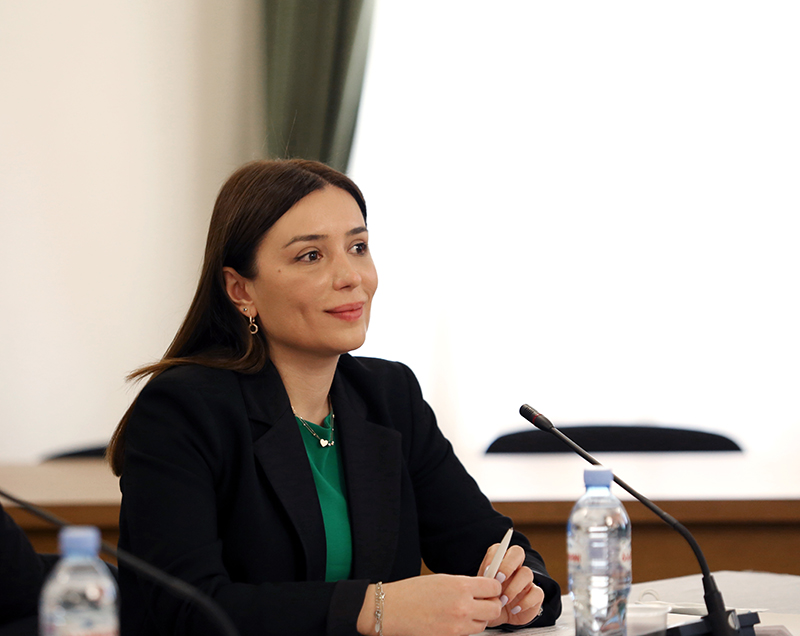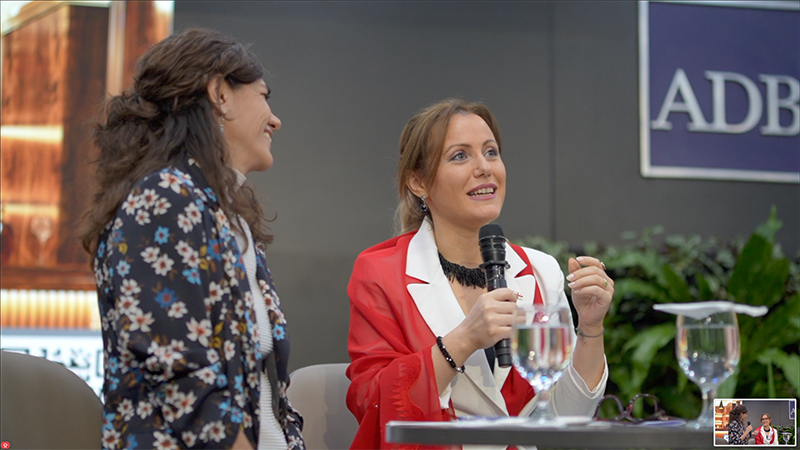What’s good for the planet is ultimately good for Microsoft
Interview with Katie Ratiani, Microsoft Representative and Director of Sales in Georgia.
Impact of current challenging times – in the early stages, most companies found the first lockdown to be damaging, and most of them were unable to adapt quickly. Despite such a state, can this situation be considered as a precondition for positive change? Can this process lead the company to new behavior standards, such as digitizing their own businesses and switching to remote management mode?
This is an exceptional moment in the history of Georgia and the whole world, and over the past several months, we have all been put to the test. During this current global economic climate and time of uncertainty, the biggest lesson learned is that no business is immune to a crisis, and no organization is 100% resilient. However, it has also taught us that digital businesses and those fortified with some digital capabilities have been able to pivot more rapidly and respond to their customers’ needs.
Every industry in our country is facing transformational change right now. For many organizations, how they defined success yesterday is not how they’re defining it today. Actions they will take today will impact the future as never before.
These challenging times have made us all more acutely aware of the need to be resilient, adaptive, and flexible. As Satya Nadella recently said, “we’ve seen two years of digital transformation in two months.” We’ve seen an acceleration of many workplace changes already well underway, such as increased needs for “remote everything,” including support of mobility, remote work, and distributed teams. Resilience – this ability to adapt quickly to changing conditions – has become the hallmark for success in today’s environment.
Georgian organizations that have already embarked on their transformational journey are seeing the benefits. With cloud-enabled technologies, they have access to on-demand tools and capacity tailored to their needs. With scalability and speed of implementation, they see increased cost savings. And with efficient, agile, and self-sufficient tools, their employees are staying productive across the organization.
These organizations have been able to respond quickly. As these challenging times have impacted their industries, they have a solid foundation for recovery, and they’re already starting to reimagine what the future may bring.
What is the significance of introducing international standards to Georgian companies? In what ways has the need for setting digitization standards become vivid?
As we step into a new decade, we’re focused on designing and building technology, based on our customers’ evolving needs. Every company is now becoming tech focused, both globally and in Georgia. That’s a big consideration for all the tools and services we create to help companies do business in smarter, more productive, and efficient ways.
Our local and international customers are adapting to massive changes in the way work gets done and their workforce expectations. Teamwork is central. Mobility is a given. Remote work is on the rise. Information is more abundant (and overwhelming) than ever. And security remains a top priority.
For organizations to digitally transform in the next decade of work, they must think about empowering every employee in the workplace with seamlessly integrated tools that help them become more connected, mobile, and productive. To be successful, organizations need to digitally connect every facet of their business, from their customers to their employees, and from their operations to their products.
Technology is certainly at the center of how these companies look at surviving and thriving in this world. As we’ve continued to partner with organizations in every industry over the past few months, it’s clear that the need to transform is only accelerating, and organizations who haven’t already invested in digital transformation are working to catch up.
Microsoft is a future-oriented company. What role does a sustainable business play in transforming the future?
Microsoft is committed to leveraging technology to solve some of the world’s most urgent environmental issues — focusing on areas where we can have the greatest impact, including carbon, energy, water, and waste.
Our mission is to empower every person and organization on the planet to achieve more. We believe that the purpose of business – and our responsibility – is to produce profitable solutions to people and the planet’s problems. That’s why we’re working every day with our customers, partners, NGOs, and others worldwide to address the climate crisis. What’s good for the planet is ultimately good for Microsoft.
Our goals are simple: to partner with innovators worldwide by providing the technology, tools, and training that enable them to better manage Earth’s natural resources, and to work with them, hand in hand, to discover new and better ways to protect our planet.
Over the past year, we have committed Microsoft to becoming a carbon negative, zero waste company that is building a new planetary computing platform to transform the way we monitor, model, and ultimately manage Earth’s natural systems. Our pledge today to become water positive by 2030. As in our other areas, we’re committed not only to setting ambitious goals for ourselves but using technology to better help our customers to do the same.
The journal aims to highlight the importance of responsible business practices. What role does Corporate Responsibility (CR) play in Microsoft’s philosophy?
Microsoft’s goal, empowering every person and every organization to achieve more, requires careful attention to the impact of our business practices, policies, and community investments. Our business practices and policies reflect our commitment to making a positive impact around the globe. We work to apply the power of technology, to earn and sustain the trust of the customers and partners we empower, and the communities in which we live and work. This focus extends to our work to build a sustainable future where everyone can access the benefits and opportunities that technology can bring. It’s central to our mission to empower every person and organization to achieve more, and it’s why many of our employees come to work every day.
We know that our decisions affect our employees, customers, partners, shareholders, suppliers, and communities, and we take their voices into account. Microsoft receives input from millions of people each year—from individual customers to policymakers and global human rights specialists. We bring outside perspectives into the company and inform our business decisions through a variety of feedback channels.
We go beyond formal channels, proactively engaging with key stakeholders, advocacy groups, industry experts, Corporate Responsibility (CR) rating agencies, CRfocused investors, and many others.
Finally, what do you think will be the pandemic’s impact on the business culture in Georgia and abroad? What are your expectations?
Capabilities you leverage are just part of the digital transformation journey. The company needs to clarify the vision & strategy, refine the culture, and identify unique potential – together, these elements position the organization for the resilience that helps you respond quickly to changing conditions.
Now more than ever, organizations are seeing the need for a higher calling – a purpose that animates their organization and guides their transformational journey. It’s clear: All the technology must enable that purpose.
We see that organizations can go through a transformation when the people inside it are unified and working with shared values and ideas. They have a Culture that keeps their team connected and an organizational mindset rooted in flexibility and openness: Openness to new ideas, processes, and technologies – that’s what it takes to build resilience. We notice that organizations whose culture accepts the diversity of personalities, abilities, ideas, and approaches required to drive an organization forward are those that do best with transformation.
We all understand that the world we’re living in now is fundamentally different from the world we were living in yesterday, and it will almost certainly look different one year from now. Together, we have a real opportunity to help it be the best place it can be by leading with purpose. Digital transformation isn’t an end in itself – each step on the journey unlocks new levels of resilience, putting organizations in a position to recover from these uncertain times and come out stronger.
Now more than ever, we believe that helping Georgian companies become digital to build that resilience is critically important. But the past several months have made it clear: becoming digital must be rooted in a strong sense of purpose.




 Search
Search





